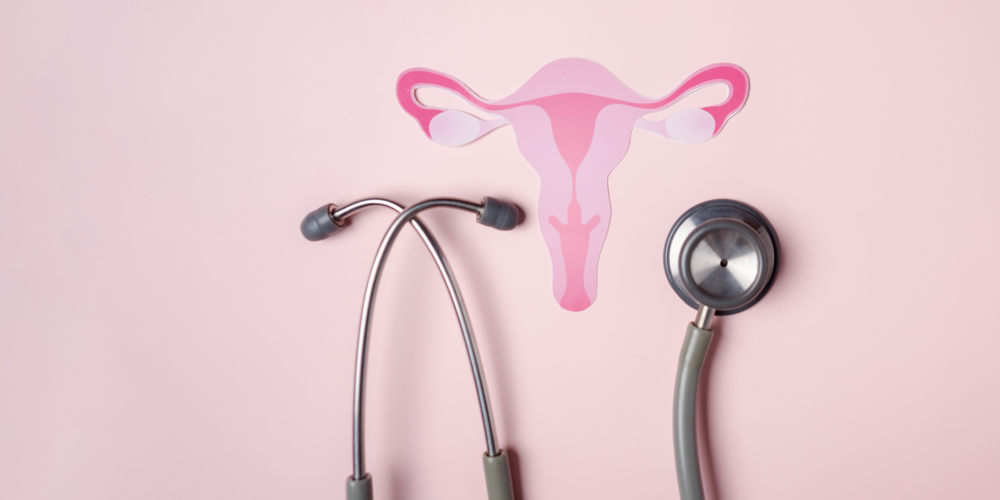Ladies, we all know that life can be a beautiful yet challenging journey. And sometimes, it throws a curveball called PCOD into the mix. But don't worry; this blog is here to guide you through the ups and downs, sharing insights and tips for managing PCOD. Read on to regain control of your health and confidence!
Introduction

Picture this: you wake up one day, and your body starts sending you unexpected signals. Irregular periods, acne, unexplained weight gain, and unwanted hair growth. Confusing, right? Well, you're not alone. These are some common signs of Polycystic Ovary Syndrome or PCOD, a condition that affects millions of women worldwide. In this blog, we'll explore the challenges women face due to PCOD and how to navigate this journey towards better health.
Understanding PCOD

PCOD may sound complicated, but it's essential to grasp the basics. PCOD, short for Polycystic Ovary Syndrome, is a hormonal disorder that affects the ovaries. It can lead to irregular menstrual cycles, excess androgen (male hormone) production, and the development of small cysts on the ovaries. While the exact cause is not known, genetics and insulin resistance are believed to play a role. PCOD can manifest differently in each woman, but common symptoms include irregular periods, acne, excessive hair growth (hirsutism), and weight gain. It's crucial to understand that PCOD isn't just about physical symptoms; it can also impact your emotional well-being.
The PCOD Struggle

PCOD can bring about a series of challenges that impact not only your physical health but also your emotional well-being. Many women with PCOD experience frustration, anxiety, and self-esteem issues. It's okay to acknowledge these struggles; you're not alone in this journey. One of the most challenging aspects is the uncertainty that PCOD can introduce into your life. The unpredictability of your menstrual cycle can make family planning difficult. Acne and excess hair growth can affect your self-confidence and body image. But remember, you're not defined by your PCOD. It's just one part of who you are.
How PCOD Affects Your Life
The ripple effect of PCOD can touch every aspect of your life. From your relationships to your career and self-confidence, PCOD can influence it all.
In relationships, PCOD can bring challenges. The emotional rollercoaster of dealing with symptoms can affect intimacy and communication. It's essential to have open and supportive conversations with your partner about your journey with PCOD.
Career-wise, the physical and emotional toll of PCOD can affect your performance. Managing your symptoms and finding ways to cope with stress is vital for success at work.
Self-confidence can take a hit when you're battling PCOD. Acne and excessive hair growth can make you feel self-conscious about your appearance. It's crucial to remember that beauty comes in all forms, and your self-worth goes far beyond physical attributes.
Taking Charge: PCOD Management

The good news is that PCOD can be managed effectively. Here's a holistic approach to help you take charge of your health:
- Lifestyle Changes: Start with a balanced diet that includes whole grains, lean proteins, fruits, vegetables, and healthy fats. Weight management is essential, as excess body weight can worsen PCOD symptoms. Regular exercise, such as aerobic workouts and strength training, can improve insulin sensitivity and regulate menstrual cycles.
- Hormonal Imbalance Correction: Consult your healthcare provider to discuss hormonal treatments if needed. They can prescribe medications like birth control pills to regulate your menstrual cycle and anti-androgens to manage excessive hair growth and acne.
- Laser Hair Removal: For the treatment of unwanted hair, consider options like laser hair removal. This safe and effective procedure can reduce unwanted hair growth and boost your confidence.
- Stress Management: Stress reduction techniques such as yoga, meditation, and mindfulness can be beneficial in managing PCOD symptoms and improving your overall well-being.
Why Consult IAS Medicare
At this point, you might be wondering,"Why IAS Medicare?" Seeking expert guidance and medical care is essential in managing PCOD. IAS Medicare Doctors understand the unique challenges women face with PCOD and have a dedicated team of specialists ready to assist you on your journey to well-being. They can provide personalized treatment plans and support to help you regain control of your health and confidence.
Conclusion
In conclusion, PCOD is a challenging journey, but it doesn't have to define your life. By understanding PCOD, acknowledging the struggles, and taking proactive steps towards managing it, you can regain control of your health and confidence. Remember, you're not alone, and there's a support system waiting to assist you on your path to well-being. To take the first step towards managing PCOD, consult and contact IAS Medicare. They're here to help you unlock the freedom to live life on your terms.
For any Medical Treatment please contact with us now.
If you are facing any Medical Issues then talk to us.

